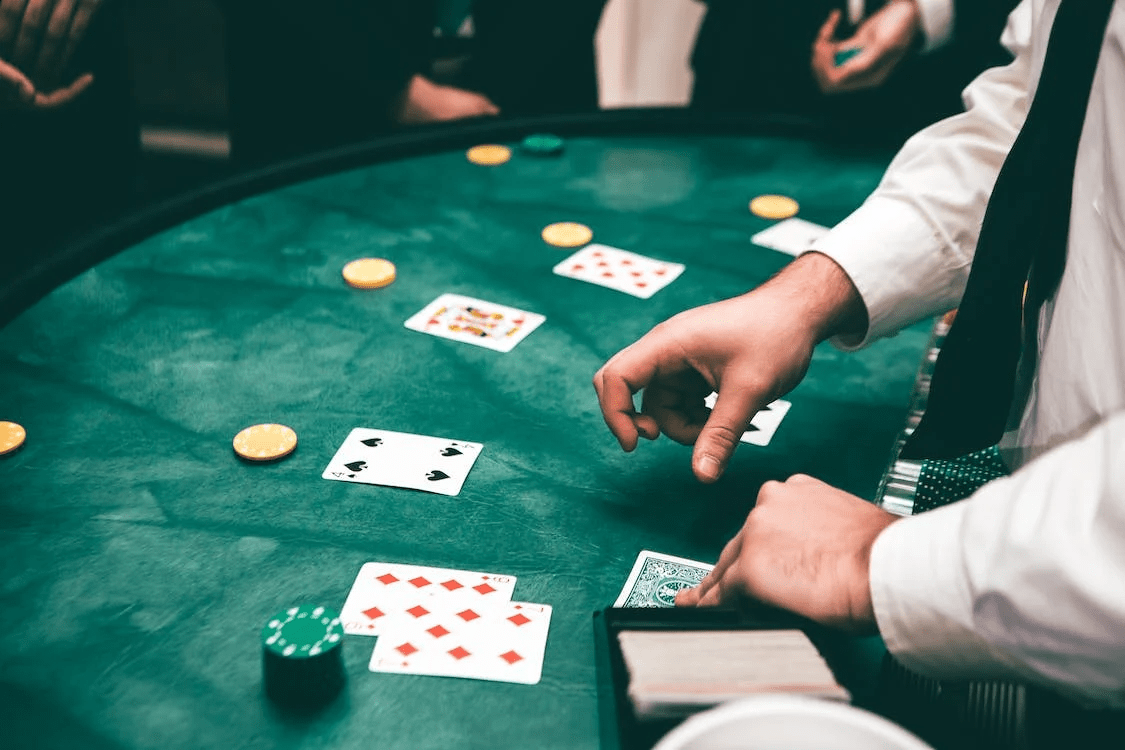What You Need to Know Before Playing Poker
Poker is a well-known card game that has been played for centuries and provides a special blend of chance and strategy. Understanding the rules of the game, the many kinds of hands, and the betting structure is essential before playing poker. Your chances of winning will rise if you are aware of these factors and can use them to your advantage.

Poker Variants
Poker is regarded as one of the most exciting card betting games in the world. There are countless variations to keep you entertained. Most people are aware of the popular poker game types that you’ll find in most casinos.
However, there are many other versions that players from all over the world take part in. Some of these you may be aware of, we’re betting that there are a few you have never heard of before. These include:
- Texas Hold’em
- No Limit Hold’em
- Pot-Limit Omaha
- Seven-Card Stud
- Omaha Hi-Lo
- Razz
- Triple Draw
- Chinese Poker
- Five-Card Draw
- Badugi
- HORSE
Poker History
Knowing the history of poker and how it came to be so popular might not be at the top of your priority list when you want to find out how to play poker. However, there are some interesting facts we thought we’d bring to your attention. If for no other reason than they can make for some interesting chatter between rounds.
- It is thought that the history of poker dates back around 1,000 years.
- According to some historians, a Chinese monarch who played domino cards in the 10th century is where poker’s roots may be found.
- Some assert that it is a derivative of “As Nas,” a 16th-century Persian game.
- Poque, which became popular in 17th-century France, was the closest European equivalent to poker.
- The 16th-century Spanish card game primero, which had three cards given to each player and relied heavily on bluffing, served as the inspiration for both opaque and its German counterpart – Pochen.
- Poque was introduced to French colonial towns in North America.
- Poque was Anglicised to poker by English settlers in the area, who also added modern game elements, including a 52-card deck and five cards for each player.
- When Queen Victoria overheard the American envoy to Great Britain describing poker to members of her court, she asked for the rules, which led to the game’s introduction to Europe in 1871.
Poker Tips
There are certain things you should and shouldn’t do when playing poker. Some of these things might seem obvious, but they’re important, so we thought we’d point them out anyway.
Only make your move when it is appropriate to do so. Never disclose your next action to a player who is still considering it in front of you. You could run the whole hand by playing out of turn.
Don’t talk or distract others while playing – unless it’s part of your strategy. Talking during rounds distracts other players and is considered extremely rude.
Don’t reveal your hand before it’s time. Even if you’ve already folded, you shouldn’t reveal any information about the cards you have until the end of the round.
Respect the dealer at all times. The dealers have no control over the cards you are dealt or those that land on the flop. They don’t control the outcome of anything in the game, and fighting with the dealer won’t benefit you in any way.
Learn the different poker strategies. Whether you choose to play them or not is irrelevant. Being able to identify when other poker players are using them could work to your advantage.
Don’t unnecessarily delay the game. Poker games can be long by nature. If you need to take some time to decide on your next move, by all means, do so. However, other players won’t take kindly to you if you’re always taking longer than needed and interrupting the flow of the game.
This advice won’t make you a successful player that wins every hand. Yet, they will assist you in mastering the fundamentals without embarrassing yourself or aggravating other players.

A Combination of Skill and Luck
For as long as poker is played, there will probably be a disagreement about whether it is a contest of skill or chance. In poker, like in other gambling games, luck is a significant factor, especially in the near term.
Contrary to popular belief, studies have revealed that success at poker is more dependent on luck. The top professionals in the world make money playing poker because they are the best at playing the game, unlike those who win other games found on a casino floor.
Not only because they are lucky. Yes, you need luck on your side when it comes to being dealt the right cards and what cards are placed on the table, but how you play the game also factors enormously into your success as a player.
Registration Open For New Online Training
Enhance Your Professional Journey with Our Upcoming Live Session. For complete information on Registration, Course Details, Syllabus, and to get the Zoom Credentials to attend the free live Demo Sessions, please click on the below links.
